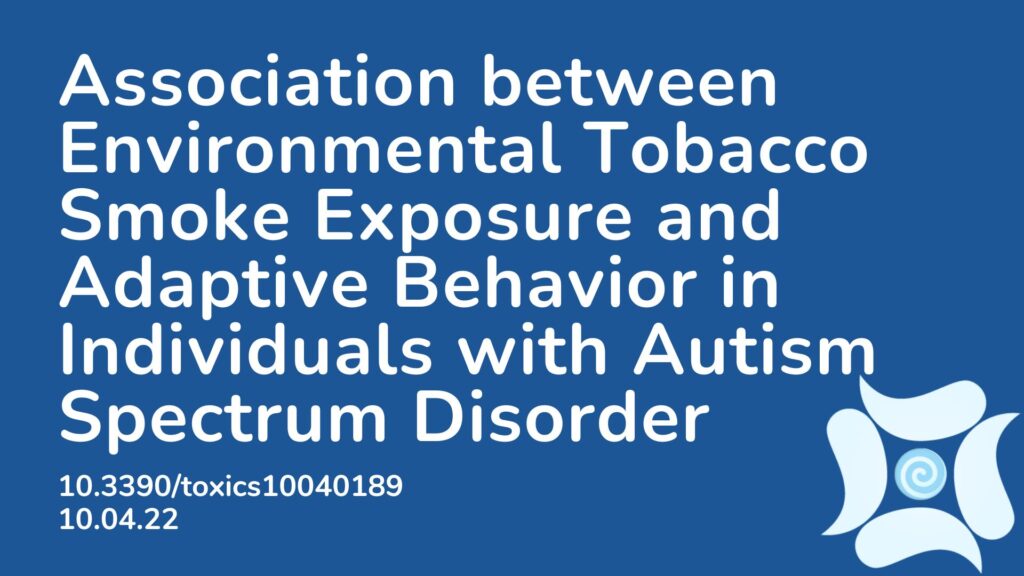Summary: Literature from the past few years has shown growing interest on the effects of passive smoking on mental health outcomes, and the results of several studies have suggested an association between exposure to tobacco smoke and an increased risk of cognitive impairment and problem behaviour in children. However, this April 2022 paper is one of the first studies investigating the association between environmental tobacco smoke (ETS) exposure (passive smoking) and adaptive behavior in children with autism spectrum disorder (ASD). 108 participants were recruited for the study, 84 children of which have ASD and 24 without ASD. During the course of the study, it was identified that there is a significant delay in adaptive behavior such as communication and everyday skills of children with ASD in comparison with the non-ASD group. It was also identified that exposure to ETS in the household was significantly associated with the presence of ASD. Whilst this is not conslusive or causative evidence, these identifications highlight the importance of proper assessment and investigation of all potentially harmful environmental factors that may intefere with adaptive behaviour. It also highlights that although there is sufficient evidence to correlate ETS exposure during pregnancy and ASD prevalence later in life, it is not just a diagnosis of ASD that is potentially correlated with ETS, but also management of ASD once diagnosed and the way in which a child can adapt to ongoing environments
Abstract:
The study focuses on current issues of adaptive behavior in individuals with autism spectrum disorder (ASD) and on the possible risk factor of environmental tobacco smoke (ETS). Children examined at the Academic Research Center for Autism (ARCA) in Bratislava were involved in the study. The study sample included 84 children (71 boys) with ASD (average age 5.35 years) and a non-ASD group of 24 children (20 boys; average age 8.10 years). The “ETS Questionnaire” focused on the detection of parental smoking habits and other ETS exposures. The concentrations of cotinine in urine were measured by ELISA kit. A significant delay in adaptive behavior of children with ASD in comparison with the non-ASD group was identified. The significant differences were in adaptive behavior, communication, and everyday skills. Children with ASD were more likely to be exposed to ETS, especially in the household. Good agreement was found between objective and subjective ETS exposure indicators (kappa = 0.613). Self-reported exposure to ETS corresponded significantly with the median levels of urinary cotinine. In addition to evaluation and assessment of the quality of adaptive behavior, an important goal of further research should be to identify, investigate, and eliminate environmental factors that interfere with adaptive behavior.
Article Publication Date: 10.04.22
DOI: 10.3390/toxics10040189



